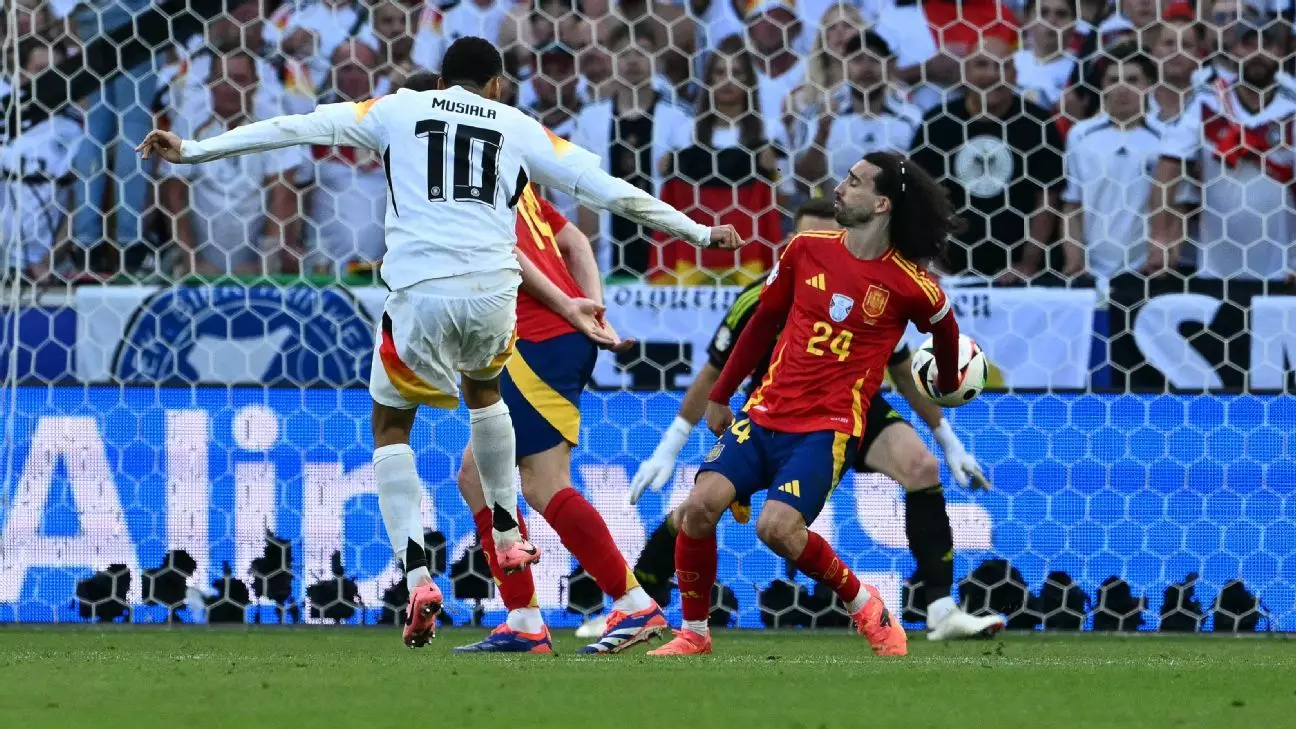The recent analysis from UEFA’s Referees’ Committee regarding Euro 2024 has brought a spotlight to a contentious decision made during the quarterfinal clash between Germany and Spain. It has been concluded that a penalty should have been awarded to Germany for a handball incident involving Spanish defender Marc Cucurella. This revelation raises pressing questions about officiating standards and the effectiveness of VAR technology in crucial match situations. The clarity provided by UEFA not only serves as a reflection on this specific incident but also highlights the ongoing debates around handball interpretations in football.
The heated moment occurred at a pivotal stage in the game, with the score tied at 1-1 during the first period of extra time. Jamal Musiala’s shot, which had the potential to shift the game’s momentum, struck Cucurella’s arm. The players and coaching staff of Germany erupted in frustration when referee Anthony Taylor chose not to point to the penalty spot, defending his decision by claiming Cucurella’s arm was positioned close to his body. This interpretation contradicted the expectations many had regarding handball rules, especially in a high-stakes tournament where every decision can have lasting consequences.
Adding to the discussion, the Video Assistant Referee (VAR), Stuart Attwell, upheld the on-field decision against awarding a penalty. This reliance on VAR has become a focal point of debate, as it was intended to act as a safety net for officials, ensuring that critical errors could be rectified. However, the cohesive expectations between the VAR and the match officials are increasingly questioned. If the outcome of such a significant match can hinge on interpretation discrepancies, how can the integrity of officiating in football be ensured? UEFA’s acknowledgment of misjudgment in this case spotlights the urgent need for a reassessment of training and guidelines for referees: should the definitions of handball be realigned or simplified to enhance clarity in decision-making?
Spain ultimately emerged victorious with a late goal from Mikel Merino, sealing a 2-1 win that propelled them to the final where they would eventually triumph over England. However, Germany’s players and supporters left the match with a bitter taste, feeling that they had been denied a fair chance due to a possibly incorrect officiating judgment. The implications of such decisions extend beyond the immediate outcome, influencing the narratives surrounding teams, players, and even the tournament itself. In this case, Germany’s missed opportunity could result in long-lasting ramifications for player morale and team dynamics.
Looking Forward
UEFA’s findings may prompt not just introspection but also action towards improving future officiating in major tournaments. By addressing the ambiguities surrounding handball and enhancing the training provided to referees, particularly concerning game-changing moments, there lies the potential for more consistent and fair outcomes. As the football community reflects on these events, it is imperative that lessons are learned to improve the integrity of the beautiful game, ensuring that no team is unjustly sidelined due to a misinterpretation or oversight.
